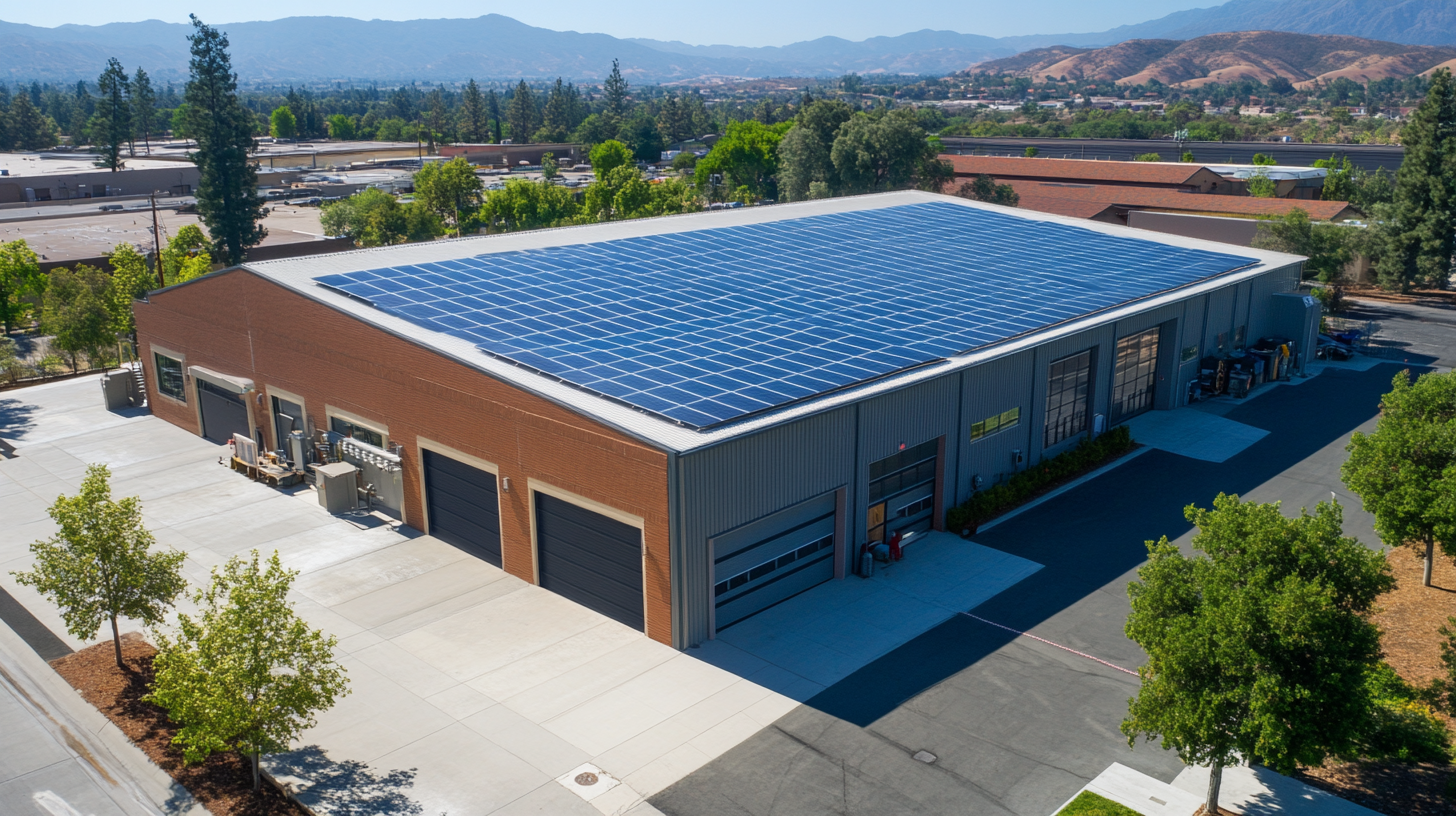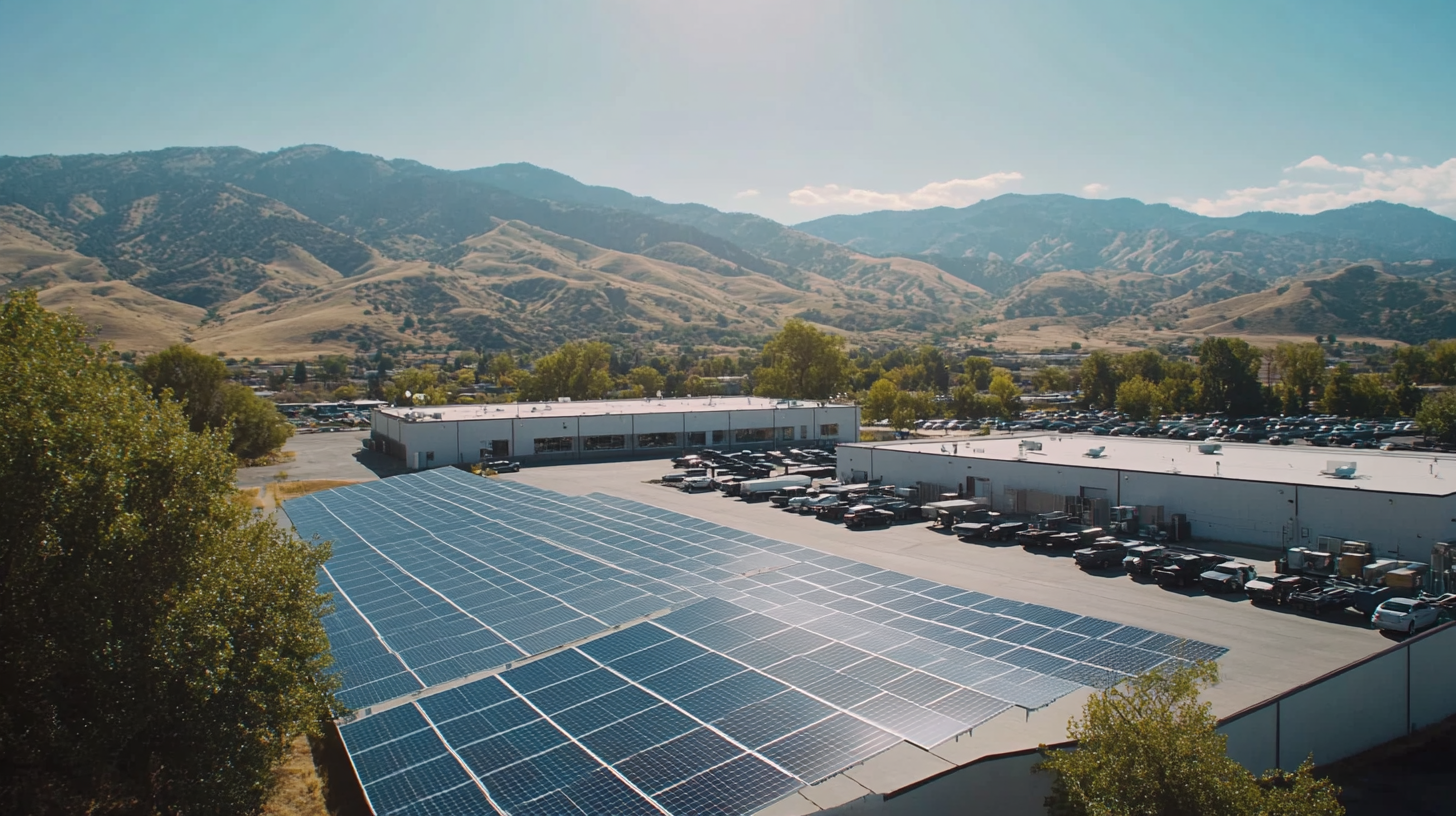Innovative Solar Solutions to Power Your Business for a Sustainable Future
The shift towards renewable energy solutions has become a critical priority for businesses seeking to enhance sustainability and reduce operational costs. According to the International Renewable Energy Agency (IRENA), solar power accounted for approximately 3.6% of the global electricity generation in 2020, and this figure is expected to surge as technological advancements drive down costs. With the global solar market projected to reach a valuation of over $223 billion by 2026, there is no denying the immense opportunity that "Solar Solutions" present for enterprises aiming to transition towards greener energy sources.
As organizations face increasing pressure from consumers and regulatory bodies to demonstrate environmental responsibility, innovative solar solutions not only help in reducing carbon footprints but also offer significant financial incentives. The U.S. Department of Energy reports that commercial solar installations typically achieve a return on investment (ROI) within five to seven years, alongside the advantages of tax incentives and rebates. By embracing solar technology, businesses can not only improve their bottom line but also position themselves as leaders in sustainability in an ever-evolving marketplace.

Harnessing Solar Energy: A Game Changer for Modern Businesses
In today’s rapidly evolving business landscape, harnessing solar energy has emerged as a transformative force for modern enterprises. As highlighted in the discourse around India’s solar energy sector, the country’s journey illustrates the remarkable potential to turn challenges into opportunities. By embracing solar power, businesses not only reduce their carbon footprint but also unlock significant cost savings and energy independence. Solar energy serves as a reliable, sustainable resource that can power operations while fostering a more resilient economy. Moreover, the integration of innovative technologies in solar energy systems is pivotal. Companies that adopt these advancements are not simply participants in a changing market; they are game changers that can influence global sustainability efforts. As part of this transition, businesses are increasingly looking into alternative solutions, such as clean hydrogen, which can work in synergy with solar energy. This hybrid approach paves the way for enhanced energy efficiency, further driving down emissions and expenses associated with traditional energy sources. Ultimately, leveraging solar energy represents a unique opportunity for businesses to position themselves at the forefront of the sustainable future. By creating ecosystems that prioritize renewable technologies and foster collaboration, companies can drive meaningful change and contribute to a greener planet. Transitioning to solar not only aligns with modern values of sustainability but also sets the groundwork for long-term success in an increasingly eco-conscious marketplace.

Exploring Different Types of Solar Solutions for Diverse Commercial Needs
As businesses strive for sustainability, the adoption of solar energy has emerged as a practical and innovative solution tailored to meet diverse commercial needs. From small enterprises to large corporations, various types of solar solutions can significantly reduce energy costs while minimizing carbon footprints. One notable option is rooftop solar panels, which can be integrated seamlessly into existing infrastructure, allowing businesses to harness sunlight directly on their premises. This not only lowers energy bills but also enhances the building's value and appeal.
Another effective solar solution is solar carports, which offer dual benefits of providing shade and generating energy. These structures are particularly beneficial for businesses with large parking areas, turning them into productive spaces that generate usable electricity. Additionally, community solar programs present an opportunity for businesses unable to install solar panels on-site. By participating in these initiatives, companies can access renewable energy from shared solar farms, contributing to a community-centered approach to sustainability while still enjoying the benefits of clean energy.
For industries with substantial energy demands, custom solar installations, like solar farms or hybrid systems incorporating battery storage, can cater to specific operational needs. These advanced solutions provide flexibility and reliability, ensuring that energy supply aligns with production schedules. As businesses explore these diverse solar solutions, they not only invest in their future but also join the growing movement towards a sustainable and resilient economy.

Cost-Benefit Analysis: The Economic Impact of Going Solar for Your Business
Transitioning to solar energy is not just an environmentally responsible decision; it can also significantly bolster a business’s bottom line. Conducting a cost-benefit analysis reveals that the initial investment in solar technology can result in substantial long-term savings. The decreasing cost of solar panels, combined with government incentives and tax credits, makes the financial barrier for entry lower than ever. Many businesses report a significant reduction in their electricity bills within the first few years of installation, sometimes recovering their investment in just 3 to 5 years.
Additionally, solar energy enhances business sustainability in ways that extend beyond mere savings. Companies that adopt solar power often experience a positive shift in their brand image, appealing to environmentally conscious consumers and partners. Furthermore, solar installations can act as a hedge against rising energy costs, providing businesses with predictable operational expenses. In sectors where energy consumption is heavy, such as manufacturing or retail, the advantages become even more pronounced, leading to enhanced competitiveness and potential market growth.
Overall, the economic impact of going solar for businesses goes beyond immediate savings. By integrating solar solutions, companies not only contribute to a more sustainable future but also position themselves favorably in a marketplace that increasingly values eco-friendly practices. The benefits of harnessing solar energy are clear, making it a prudent choice for any forward-thinking business.

Innovative Technologies in Solar Power: What’s on the Horizon?
As we stride towards a sustainable future, innovative technologies in solar power are set to transform how businesses harness energy. According to a recent report by the International Renewable Energy Agency (IRENA), it is projected that solar energy could emerge as the world's leading source of electricity by 2050, surpassing fossil fuels, wind, and nuclear. This shift presents a significant opportunity for businesses to reduce their carbon footprint while achieving energy independence.
Among the most exciting developments are organic photovoltaic (OPV) technologies, which utilize carbon-containing molecules to create lightweight and flexible solar panels. Researchers in Europe are pioneering this field, enabling the production of cost-effective alternatives that can be integrated into various surfaces, including building materials and even textiles. These innovations promise not only to lower the cost of solar energy adoption but also to broaden its applicability, making solar power accessible in ways previously unimaginable.
Additionally, advancements in solar heat technologies, particularly in Concentrated Solar Power (CSP), are shedding light on innovative methods for powering industries. CSP systems use mirrors or lenses to concentrate sunlight, producing steam that drives turbines for electricity generation. This method is expected to play a crucial role in meeting energy demands for industrial applications, leading to increased energy efficiency and sustainability in the industrial sector.
The future of solar energy is bright, with these technologies paving the way for more energy-efficient solutions that can power businesses and contribute to a more sustainable planet. As companies begin to adopt these innovative solar solutions, the pathway to a greener future becomes increasingly attainable.
Real-Life Case Studies: Businesses Thriving with Solar Energy Solutions
In today's rapidly changing energy landscape, businesses are increasingly recognizing the advantages of solar energy as a crucial part of their sustainability strategy. Innovative solar solutions are not just about reducing operational costs but are also pivotal in creating a more resilient and community-focused energy future. Many companies have successfully embraced these technologies, showcasing the transformative power of solar energy in real-world settings.
Real-life case studies reveal inspiring examples where businesses have thrived through solar solutions. For instance, companies that integrated solar panels not only lowered energy costs but also contributed to local economies by fostering community engagement. This aligns with the concept of a circular economy, where resources are reused and repurposed, leading to a more sustainable business model that benefits everyone involved. By investing in solar energy, these businesses are not just taking charge of their energy demand; they are empowering their communities to drive the energy transition, ensuring that local stakeholders also reap rewards from this shift towards renewable resources.
Additionally, as countries around the world increasingly prioritize renewable energy, companies that adopt solar solutions position themselves at the forefront of this movement. This trend is critical not only for fostering innovation but also for achieving the collective goal of reducing carbon emissions. As businesses illustrate how solar energy can fuel their operations sustainably, they also become vital players in the global effort to transition to a low-carbon future, setting a powerful example for others to follow.


